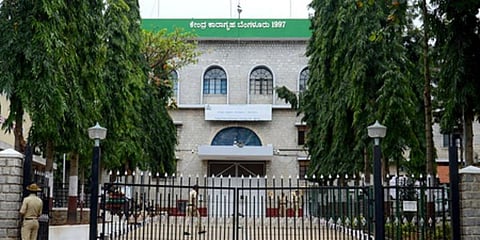

BENGALURU: More than 16,000 prisoners in the State will not be able to cast their vote in the forthcoming assembly elections.
As per section 62(5) of the Representation of the People Act 1951, “No person shall vote at any election if he is confined in a prison, whether under a sentence of imprisonment or transportation or otherwise or is in the lawful custody of the police.”
This, however, does not apply to those on bail.
“It’s an anomaly that prison inmates who are undertrials or convicts cannot cast their votes whereas individuals with criminal charges can contest elections even if they are inside the prison," said Dr ST Ramesh, former director general and inspector general of police, Karnataka. He was also the Chief of the Karnataka Prison Department from 2007-2009.
He said the option of postal ballots can be extended to prisons.
There are 16,510 prisoners in the state including 12823 undertrials (UTs).
Additional Director General of Police (Prison and Correctional Services), Manish Kharbikar said, that the law “does not allow a prison inmate to cast a vote, hence no voting arrangements have been made inside the prisons.”
Former Lokayukta and Supreme Court judge Justice N Santhosh Hegde said that "The statutory rights of a person remain intact even when they are sent to prison. Food, healthcare, education and other basic facilities are still made accessible to them. Every citizen of India is eligible to vote and must be allowed to practice it even inside the prison,” he said.
Former Karnataka state prosecutor, BT Venkatesh, said that the Election Commission (EC) is at fault for not making such provisions despite the fact that prisons are “reformative” in nature.
"Prisons are correctional centers and help inmates to develop skills so that when they are released they can contribute productively towards the society. Why can’t they be allowed to vote? They are citizens of India," he said while questioning the blanket ban on the voting rights of prisoners.
Madhurima Dhanuka, Programme Head, Prison Reforms Programme, Commonwealth Human Rights Initiative (CHRI) said that if prisoners are allowed to vote “it would be beneficial for jail reforms as well. Usually, nobody looks at them since they are not part of the vote bank."
"This is also one of the reasons behind the poor condition of our prison setup. There is an immediate need to change the law,” she said.